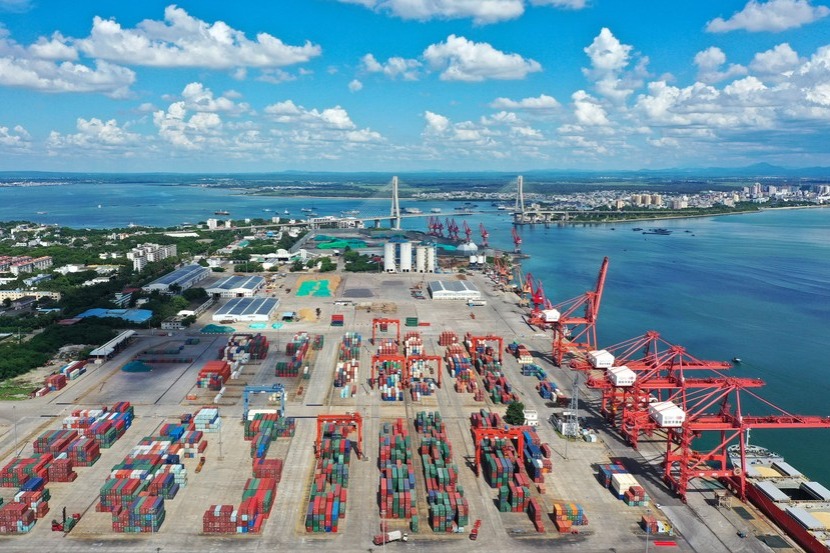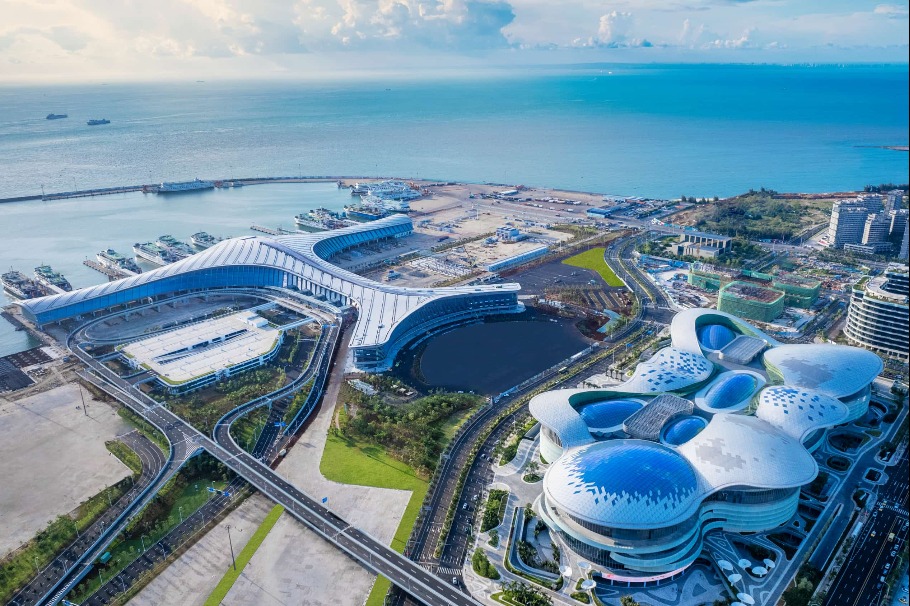'Game of chicken' on Korean Peninsula risks a potential mishap if carried on: China Daily editorial
chinadaily.com.cn | Updated: 2024-10-16 20:43
Beijing on Tuesday urged Seoul and Pyongyang "to avoid a further escalation" of friction, with a Foreign Ministry spokeswoman saying that tensions on the Korean Peninsula do not serve the common interests of all parties, and the priority is to avoid conflict.
For months, the Democratic People's Republic of Korea and the Republic of Korea have been trading their evil feelings via balloons — the north flying filth to the south, the latter sending mostly propaganda leaflets in return.
The result has been a higher level of animosity.
The DPRK has officially forsaken the long-standing goal of unification, and labeled the ROK an "invariable principal enemy".
In a fiery new round of exchanges over the past few days, Pyongyang blew up parts of unused roads once connecting the two countries and ordered its artillery units near the border with the ROK to "get fully ready to open fire". The ROK in turn fired warning shots within its own border. And the corresponding rhetoric has been inflammatory on both sides.
According to DPRK media, leader Kim Jong-un has threatened to turn the country's southern neighbor into "piles of ashes". Seoul, on its part, has threatened the "end of the North Korean regime".
But there seems to be a general consensus among international observers that the verbal threats being exchanged across the demarcation line are symbolic.
Such judgment seems tenable for multiple reasons. Most important of all, neither side wants an immediate military conflict, nor can they afford one at this point in time.
Any coolheaded review of its own conditions should make decision-makers in Pyongyang think twice about making good their threats. The country's economic conditions don't support acting on the war rhetoric. And the ROK could count on the assistance from the United States and its Western allies in case of a real conflict.
Nor do the ROK, the US and their Western allies want a conflict at the moment. It is true that the two Koreas remain technically at war in the absence of a peace agreement. Seoul still retains a ministry of unification, meaning it is yet to abandon unification as a national strategic goal. And Pyongyang's nuclear program and alleged military aid to Russia's "special military operation" in Ukraine have been thorns in the US' and its allies' side. However, a hot war on the Korean Peninsula is probably a step too far even for the war-seeking US.
The likelihood of an immediate major conflict that would upend the relative peace on the Korean Peninsula therefore hopefully remains low.
But that in no way forecloses the possibility of an unexpected, unintended flare-up, which may easily trigger an abrupt escalation. No analysis of the situation on the peninsula should ignore the steady accumulation of animosity there, especially as a result of perceived third-party instigation.
For one thing, Pyongyang has been dispatching trash balloons in response to the ROK's joint drills with the US and the deployment of US strategic assets in the region. It has not only carried out more missile tests, but also released photos of a facility to enrich uranium for atomic bombs.
China's position on maintaining peace and stability on the peninsula and promoting a political solution to the peninsula issue remains unchanged. But, as the Chinese Foreign Ministry spokeswoman Mao Ning said, "We also hope that all parties will make joint efforts toward this goal."
It is consoling to see the ROK's Gyeonggi province, which sits near the border with the DPRK, issue a warning stating "the act of scattering leaflets toward North Korea is an extremely dangerous act that could trigger a military conflict".
The exercising of a little more restraint by both Seoul and Pyongyang would be of far more benefit to both sides than the "game of chicken" they are playing now.
























